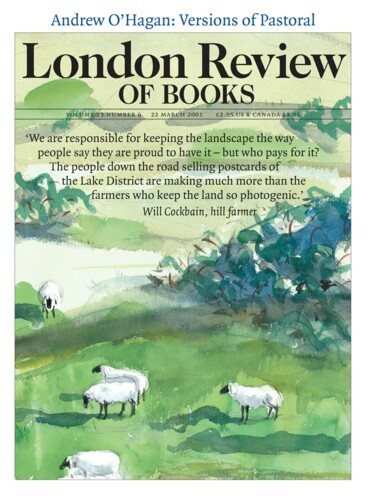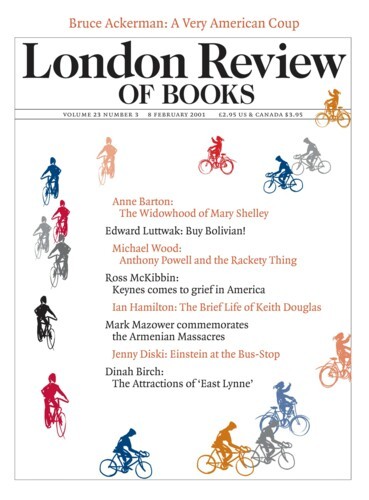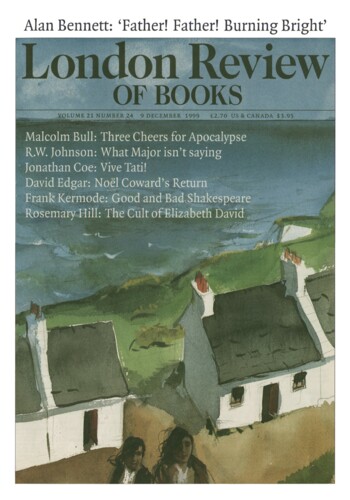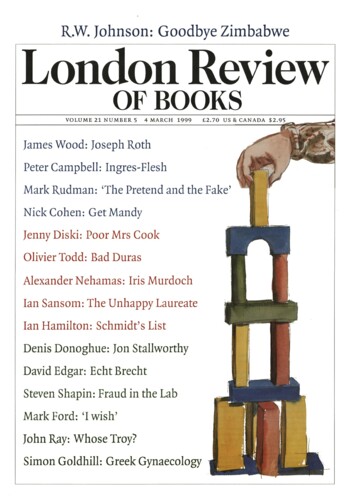What’s Coming: J.M. Synge
David Edgar, 22 March 2001
There’s a saying that all great English playwrights start out as failed Irish actors. In fact, only the late Restoration dramatist George Farquhar fits the bill completely. But actor-playwrights go back from Marber, Pinter, Osborne and Coward to Jonson and Shakespeare. And if you leave out the Irish (by birth or upbringing), you lose Congreve, Sheridan, Goldsmith, Wilde and Shaw. The...




